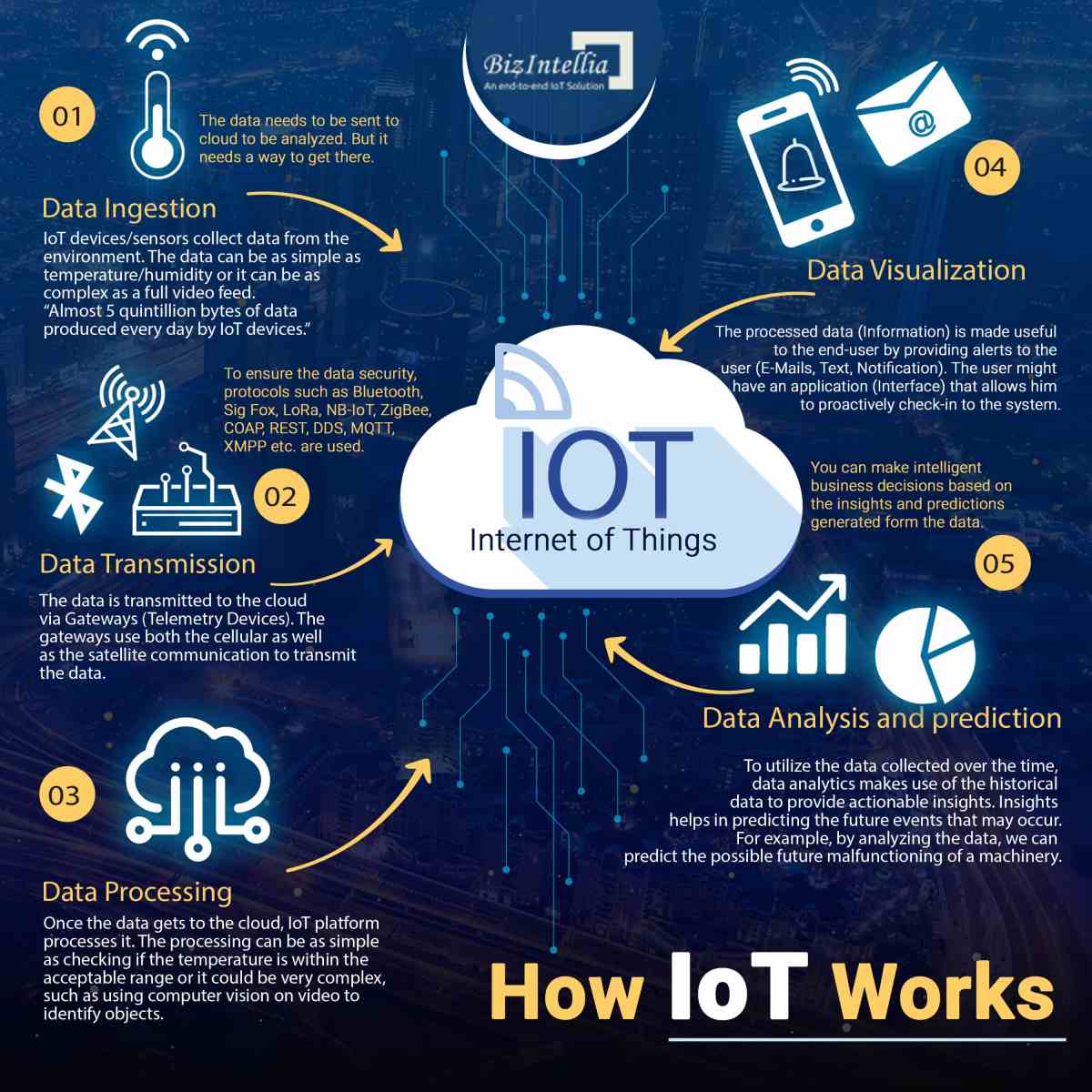Artificial Intelligence Revolution: 7 Powerful Insights You Must Know
Welcome to the fascinating world of Artificial Intelligence (AI), where machines think, learn, and evolve—just like humans. From self-driving cars to smart assistants, AI is reshaping how we live, work, and connect. Let’s dive into the future, today.
What Is Artificial Intelligence (AI)? A Clear Definition

Artificial Intelligence (AI) refers to the simulation of human intelligence in machines programmed to think, learn, and perform tasks that typically require human cognition. These tasks include problem-solving, decision-making, language understanding, visual perception, and even creativity. AI isn’t just a futuristic concept—it’s already embedded in our daily lives, from personalized Netflix recommendations to fraud detection in banking.
The Core Principles Behind AI
At its foundation, Artificial Intelligence (AI) operates on three key principles: data, algorithms, and computing power. Machines learn by processing vast amounts of data using complex algorithms, improving their performance over time through experience—this is known as machine learning. The more data an AI system analyzes, the smarter it becomes.
Artificial Intelligence (AI) – Artificial Intelligence (AI) menjadi aspek penting yang dibahas di sini.
- Data fuels AI: Without quality data, AI cannot learn effectively.
- Algorithms act as the brain: They define how machines interpret and respond to data.
- Computing power enables speed: High-performance processors allow real-time AI processing.
“AI is the new electricity. Just as electricity transformed countless industries, AI will now do the same.” — Andrew Ng, Co-founder of Google Brain
Types of Artificial Intelligence: Narrow vs. General vs. Superintelligent
Not all AI is created equal. There are three primary categories:
- Narrow AI (Weak AI): Designed for specific tasks. Examples include Siri, Alexa, and recommendation engines. This is the only form of AI that currently exists.
- General AI (Strong AI): Hypothetical AI that can perform any intellectual task a human can. It remains theoretical and is a major focus of long-term research.
- Superintelligent AI: An advanced form surpassing human intelligence across all domains. This concept is largely speculative and raises significant ethical concerns.
Today’s Artificial Intelligence (AI) systems fall under Narrow AI, but researchers are actively exploring pathways toward General AI.
History of Artificial Intelligence (AI): From Concept to Reality
The journey of Artificial Intelligence (AI) began long before modern computers. Philosophers and mathematicians pondered the idea of artificial beings capable of thought as early as ancient Greece. However, the formal birth of AI as a scientific discipline occurred in the mid-20th century.
Artificial Intelligence (AI) – Artificial Intelligence (AI) menjadi aspek penting yang dibahas di sini.
The Birth of AI: The 1950s and the Dartmouth Conference
In 1956, a group of visionary scientists—including John McCarthy, Marvin Minsky, Nathaniel Rochester, and Claude Shannon—gathered at Dartmouth College for a summer workshop. This event, known as the Dartmouth Conference, is widely regarded as the official founding moment of Artificial Intelligence (AI) as a field.
McCarthy coined the term “Artificial Intelligence” to distinguish it from cybernetics and emphasize the goal of creating machines that could mimic human reasoning. The optimism was high, with predictions that machines would soon be able to translate languages, play chess, and even think creatively.
AI Winters: Periods of Decline and Skepticism
Despite early enthusiasm, progress slowed due to technological limitations and unmet expectations. This led to periods known as “AI winters”—times when funding and interest in AI research drastically declined.
Artificial Intelligence (AI) – Artificial Intelligence (AI) menjadi aspek penting yang dibahas di sini.
- First AI Winter (1974–1980): Caused by the limitations of early AI programs and the realization that machines couldn’t easily replicate human common sense.
- Second AI Winter (late 1980s–1990s): Triggered by the collapse of the Lisp machine market and overpromising by AI companies.
These winters taught valuable lessons: AI development requires patience, sustained investment, and realistic expectations.
Modern Resurgence: The 21st Century AI Boom
The 2000s marked a turning point. Advances in computing power, the explosion of digital data, and breakthroughs in machine learning algorithms reignited AI research. Key milestones include:
- IBM’s Deep Blue defeating chess champion Garry Kasparov in 1997.
- Google’s breakthrough in speech recognition using deep learning in 2012.
- OpenAI’s launch of GPT-3 in 2020, showcasing unprecedented language generation capabilities.
Today, Artificial Intelligence (AI) is no longer confined to labs—it’s powering smartphones, healthcare systems, and autonomous vehicles.
Artificial Intelligence (AI) – Artificial Intelligence (AI) menjadi aspek penting yang dibahas di sini.
How Artificial Intelligence (AI) Works: The Technology Behind the Magic
Understanding how Artificial Intelligence (AI) functions requires exploring its underlying technologies. At the heart of AI are machine learning, neural networks, and natural language processing—all working together to enable intelligent behavior.
Machine Learning: The Engine of AI
Machine learning (ML) is a subset of Artificial Intelligence (AI) that allows systems to learn from data without being explicitly programmed. Instead of following rigid rules, ML models identify patterns and make predictions based on historical data.
- Supervised Learning: Models are trained on labeled data (e.g., images tagged as “cat” or “dog”).
- Unsupervised Learning: Models find hidden patterns in unlabeled data (e.g., customer segmentation).
- Reinforcement Learning: Models learn through trial and error, receiving rewards for correct actions (used in robotics and game-playing AIs).
For more on machine learning fundamentals, visit IBM’s Machine Learning Guide.
Artificial Intelligence (AI) – Artificial Intelligence (AI) menjadi aspek penting yang dibahas di sini.
Neural Networks and Deep Learning
Deep learning is a powerful branch of machine learning inspired by the human brain. It uses artificial neural networks—layers of interconnected nodes (neurons) that process information.
- Each layer extracts increasingly complex features from the input data.
- For example, in image recognition, early layers detect edges, while deeper layers identify shapes and objects.
- Deep learning has revolutionized fields like computer vision, speech recognition, and autonomous driving.
“Deep learning is like a telescope for the mind. It allows us to see patterns we never could before.” — Geoffrey Hinton, Father of Deep Learning
Natural Language Processing (NLP)
Natural Language Processing enables machines to understand, interpret, and generate human language. This is crucial for applications like chatbots, translation services, and sentiment analysis.
- NLP powers virtual assistants like Siri and Alexa.
- Transformers, a type of neural network architecture, have dramatically improved NLP performance (e.g., BERT, GPT).
- Recent models can write essays, summarize articles, and even generate code.
Learn more about NLP advancements at Hugging Face Transformers.
Artificial Intelligence (AI) – Artificial Intelligence (AI) menjadi aspek penting yang dibahas di sini.
Applications of Artificial Intelligence (AI) Across Industries
Artificial Intelligence (AI) is transforming nearly every sector of the economy. Its ability to process vast data, automate tasks, and make intelligent decisions makes it invaluable across industries.
Healthcare: Saving Lives with AI
In healthcare, Artificial Intelligence (AI) is improving diagnostics, treatment planning, and patient care.
- AI-powered imaging tools detect tumors in X-rays and MRIs with high accuracy.
- IBM Watson Health analyzes medical literature to assist doctors in diagnosing rare diseases.
- Predictive analytics help hospitals manage patient admissions and reduce wait times.
A study by Nature Medicine found that AI can diagnose breast cancer from mammograms more accurately than human radiologists in some cases.
Artificial Intelligence (AI) – Artificial Intelligence (AI) menjadi aspek penting yang dibahas di sini.
Finance: Smarter Banking and Fraud Detection
The financial industry leverages Artificial Intelligence (AI) for risk assessment, fraud detection, and personalized banking.
- Credit scoring models use AI to evaluate loan applicants more fairly.
- AI monitors transactions in real time to flag suspicious activity.
- Robo-advisors like Betterment and Wealthfront provide automated investment advice.
According to a report by McKinsey, AI could generate up to $1 trillion in annual value for the global banking sector.
Transportation: The Rise of Autonomous Vehicles
Self-driving cars are one of the most visible applications of Artificial Intelligence (AI). Companies like Tesla, Waymo, and Cruise are pioneering autonomous driving technology.
Artificial Intelligence (AI) – Artificial Intelligence (AI) menjadi aspek penting yang dibahas di sini.
- Sensors and cameras collect real-time data about the environment.
- AI processes this data to make split-second decisions—steering, braking, and accelerating.
- Autonomous trucks could revolutionize logistics and reduce delivery costs.
Despite progress, challenges remain, including regulatory hurdles and public trust.
Education: Personalized Learning Experiences
Artificial Intelligence (AI) is reshaping education by enabling adaptive learning platforms.
- AI tutors provide instant feedback and adjust difficulty based on student performance.
- Platforms like Khan Academy and Duolingo use AI to personalize lessons.
- Automated grading systems save teachers time on routine assessments.
AI also helps identify students at risk of falling behind, allowing for early intervention.
Artificial Intelligence (AI) – Artificial Intelligence (AI) menjadi aspek penting yang dibahas di sini.
Benefits of Artificial Intelligence (AI): Why It Matters
The advantages of Artificial Intelligence (AI) are vast and far-reaching. From boosting productivity to enhancing safety, AI is a powerful tool for progress.
Increased Efficiency and Automation
AI automates repetitive and time-consuming tasks, freeing humans to focus on creative and strategic work.
- In manufacturing, AI-powered robots assemble products with precision.
- In customer service, chatbots handle thousands of inquiries simultaneously.
- AI streamlines supply chains by predicting demand and optimizing inventory.
This leads to cost savings, faster operations, and improved scalability.
Artificial Intelligence (AI) – Artificial Intelligence (AI) menjadi aspek penting yang dibahas di sini.
Enhanced Decision-Making
Artificial Intelligence (AI) supports better decisions by analyzing data faster and more accurately than humans.
- Doctors use AI to interpret medical scans and recommend treatments.
- Business leaders rely on AI-driven analytics to forecast market trends.
- Urban planners use AI to optimize traffic flow and reduce congestion.
By reducing human bias and error, AI contributes to more objective and data-driven outcomes.
Improved Safety and Risk Reduction
AI enhances safety in high-risk environments where human presence is dangerous.
Artificial Intelligence (AI) – Artificial Intelligence (AI) menjadi aspek penting yang dibahas di sini.
- Drones equipped with AI inspect power lines and oil rigs.
- Predictive maintenance systems detect equipment failures before they occur.
- In cybersecurity, AI identifies threats and prevents data breaches.
These applications protect lives, infrastructure, and sensitive information.
Challenges and Ethical Concerns of Artificial Intelligence (AI)
While Artificial Intelligence (AI) offers immense benefits, it also presents significant challenges that must be addressed to ensure responsible development.
Bias and Fairness in AI Systems
AI systems can inherit biases present in their training data, leading to unfair or discriminatory outcomes.
Artificial Intelligence (AI) – Artificial Intelligence (AI) menjadi aspek penting yang dibahas di sini.
- A facial recognition system trained mostly on light-skinned faces may misidentify people of color.
- Recruitment AI tools have been found to favor male candidates due to historical hiring data.
- Biased algorithms in criminal justice can lead to unequal sentencing recommendations.
Organizations like Partnership on AI are working to promote fairness and transparency in AI development.
Job Displacement and Economic Impact
As AI automates tasks, there are growing concerns about job losses, especially in routine-based roles.
- Self-checkout systems reduce the need for cashiers.
- AI-powered legal research tools may impact paralegals and junior lawyers.
- Autonomous vehicles could displace millions of truck drivers.
However, AI also creates new jobs in AI development, data science, and ethics oversight. The key is reskilling and workforce adaptation.
Artificial Intelligence (AI) – Artificial Intelligence (AI) menjadi aspek penting yang dibahas di sini.
Privacy and Surveillance Risks
Artificial Intelligence (AI) enables mass data collection and analysis, raising serious privacy concerns.
- Facial recognition is used in public spaces without consent.
- AI-powered surveillance systems can track individuals’ movements and behaviors.
- Data breaches involving AI systems can expose sensitive personal information.
Strong regulations, such as the EU’s General Data Protection Regulation (GDPR), are essential to protect individual rights.
The Future of Artificial Intelligence (AI): What Lies Ahead
The future of Artificial Intelligence (AI) is both exciting and uncertain. As technology advances, we can expect AI to become more integrated, intelligent, and influential in our lives.
Artificial Intelligence (AI) – Artificial Intelligence (AI) menjadi aspek penting yang dibahas di sini.
Towards Artificial General Intelligence (AGI)
While today’s AI is narrow, researchers are striving toward Artificial General Intelligence (AGI)—a system that can understand, learn, and apply knowledge across diverse domains.
- AGI would possess reasoning, planning, and abstract thinking abilities comparable to humans.
- Companies like DeepMind and OpenAI are exploring pathways to AGI.
- However, AGI remains a distant goal, with estimates ranging from decades to centuries.
Reaching AGI would be a monumental achievement, but it also raises profound ethical and existential questions.
AI and Human Collaboration: The Hybrid Future
The most likely future isn’t AI replacing humans, but AI augmenting human capabilities.
Artificial Intelligence (AI) – Artificial Intelligence (AI) menjadi aspek penting yang dibahas di sini.
- Doctors will use AI as diagnostic partners, not replacements.
- Artists will collaborate with AI to generate new forms of creative expression.
- Engineers will use AI to simulate and test complex designs.
This human-AI partnership will enhance productivity, innovation, and problem-solving across fields.
Regulation and Global Governance of AI
As AI becomes more powerful, governments and international bodies are stepping in to regulate its use.
- The European Union is developing the AI Act, a comprehensive legal framework for AI.
- The United States has issued executive orders on AI safety and ethics.
- UNESCO has adopted recommendations on the ethical use of AI.
Effective governance will be crucial to prevent misuse, ensure accountability, and promote equitable access to AI benefits.
Artificial Intelligence (AI) – Artificial Intelligence (AI) menjadi aspek penting yang dibahas di sini.
How to Get Started with Artificial Intelligence (AI)
Whether you’re a student, professional, or entrepreneur, getting involved in Artificial Intelligence (AI) is more accessible than ever. Here’s how to begin your journey.
Learn the Fundamentals of AI and Machine Learning
Start with online courses and tutorials to build a strong foundation.
- Coursera offers Andrew Ng’s Machine Learning course, one of the most popular introductions to AI.
- edX provides courses from MIT and Harvard on AI and data science.
- Google’s AI Education platform offers free resources for beginners.
Understanding the basics of Python, statistics, and linear algebra will give you a solid technical edge.
Artificial Intelligence (AI) – Artificial Intelligence (AI) menjadi aspek penting yang dibahas di sini.
Explore AI Tools and Platforms
Hands-on experience is key. Experiment with user-friendly AI platforms.
- Google Colab: A free cloud-based Jupyter notebook environment for running AI code.
- TensorFlow and PyTorch: Open-source libraries for building machine learning models.
- Hugging Face: A platform for sharing and using pre-trained AI models, especially in NLP.
These tools allow you to build and test AI applications without needing expensive hardware.
Join AI Communities and Stay Updated
Engage with the AI community to learn from experts and stay informed.
Artificial Intelligence (AI) – Artificial Intelligence (AI) menjadi aspek penting yang dibahas di sini.
- Follow AI researchers on Twitter and LinkedIn.
- Participate in Kaggle competitions to solve real-world AI challenges.
- Attend conferences like NeurIPS, ICML, or AI Summit.
Staying connected helps you grow your skills and discover new opportunities in the AI ecosystem.
What is Artificial Intelligence (AI)?
Artificial Intelligence (AI) is the simulation of human intelligence in machines, enabling them to perform tasks like learning, reasoning, problem-solving, and understanding language. It includes technologies like machine learning, neural networks, and natural language processing.
Artificial Intelligence (AI) – Artificial Intelligence (AI) menjadi aspek penting yang dibahas di sini.
How is AI used in everyday life?
AI is used in virtual assistants (Siri, Alexa), recommendation systems (Netflix, Amazon), navigation apps (Google Maps), spam filters, and facial recognition on smartphones. It’s also behind fraud detection in banking and personalized ads online.
Can AI replace human jobs?
Artificial Intelligence (AI) – Artificial Intelligence (AI) menjadi aspek penting yang dibahas di sini.
AI can automate repetitive and routine tasks, potentially displacing some jobs, especially in manufacturing, customer service, and data entry. However, it also creates new roles in AI development, data analysis, and ethics. The focus should be on reskilling and adapting to an AI-driven economy.
Is AI dangerous?
AI itself is not inherently dangerous, but its misuse or lack of regulation can lead to risks like bias, privacy violations, and autonomous weapons. Ensuring ethical development, transparency, and strong governance is key to minimizing these risks.
Artificial Intelligence (AI) – Artificial Intelligence (AI) menjadi aspek penting yang dibahas di sini.
What’s the difference between AI and machine learning?
Artificial Intelligence (AI) is the broader concept of machines performing intelligent tasks. Machine learning is a subset of AI that enables systems to learn from data without explicit programming. All machine learning is AI, but not all AI uses machine learning.
Artificial Intelligence (AI) is no longer science fiction—it’s a transformative force reshaping our world. From its historical roots to cutting-edge applications, AI offers incredible opportunities and challenges. Understanding its principles, uses, and ethical implications empowers us to shape a future where AI enhances human potential rather than replaces it. Whether you’re a curious learner or a future innovator, now is the time to engage with AI—because the future is intelligent, and it’s already here.
Artificial Intelligence (AI) – Artificial Intelligence (AI) menjadi aspek penting yang dibahas di sini.
Further Reading:






